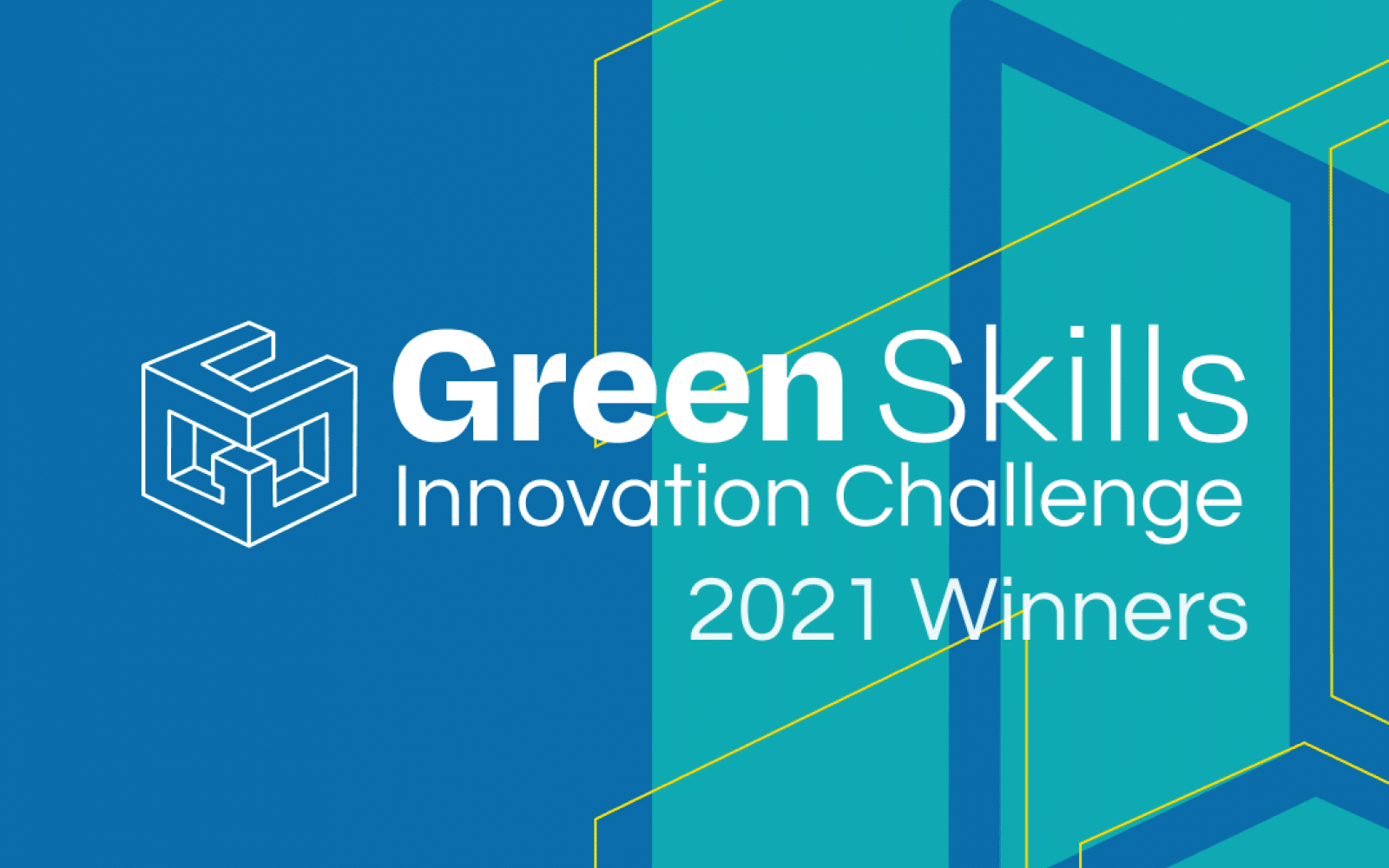Ashoka and HSBC scoured the globe to find a new type of changemaker organization which will be absolutely critical in the coming decade: Green Skills Innovators.
These are organizations connecting people with the skills needed to make the transition to a Green Economy possible. What’s more, these changemakers are ensuring that the communities most in need of opportunity are the ones getting the skills needed to thrive in this new economy. They are simultaneously solving both environmental and social problems.
We are excited to announce our 12 winners. By equipping people with “green skills” - the abilities they’ll need to step into jobs that positively impact the planet - these 12 organizations have found a way to solve interconnected social and environmental problems. Their approaches are innovative and impactful, and they vary across different sectors, geographies and livelihoods. Within this diverse group of innovators lies ideas and insight which will be invaluable as we work to transition our global economy to one that is harmonious with a healthy planet and provides dignified work for all.
The winners will be awarded up to $20,000 of grant funding from a total prize fund of $230,000. They'll also have the opportunity to scale their projects to new levels with mentorship from Ashoka and HSBC.
Read on to explore the changemakers’ stories!
---------
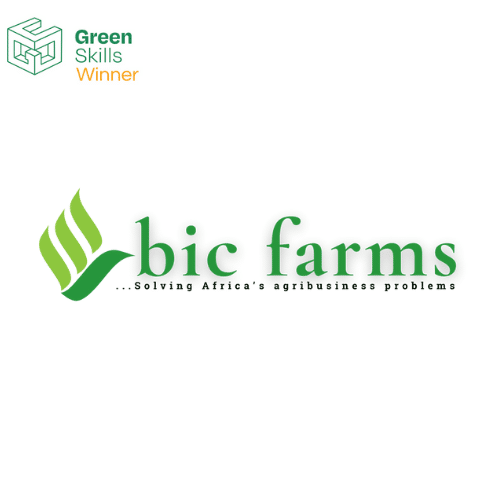
To help solve food insecurity and alleviate pressures on the water in Nigeria, Adebowale Onafowora is utilizing hydroponic technology to feed people. Hydroponic technology grows food without soil but with added nutrients. Onafowora has been able to train over 20,000 Africans, mostly young people and women, in how to use hydroponic technology for their own farming.
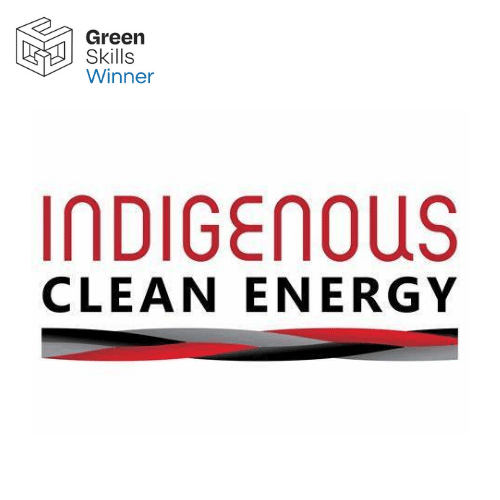
To promote the growth of renewable energy in Indigenous communities, Three Island Energy seeks to share its transition know-how with the global community. Ever since Canada began a transition to clean energy fifteen years ago, Indigenous communities developed community renewable energy microgrids. In 2020, Three Island Energy began a global collaboration between Indigenous communities to advance community ownership of renewable energy systems to promote local economic development and clean energy futures.
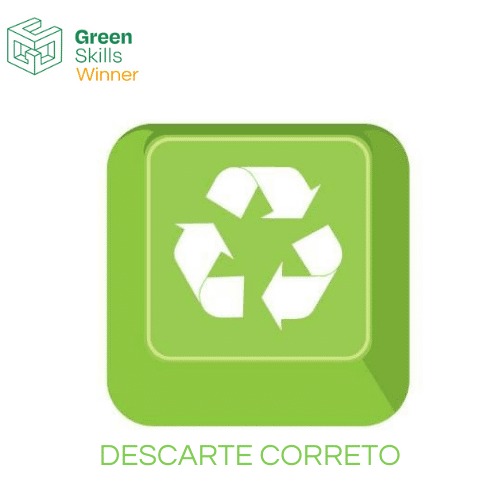
Brazil is one of the world’s top producers of electronic waste (e-waste), contributing over 1 million tons a year. E-waste contains highly toxic heavy metals that are released into landfills and contaminates groundwater and air. Descarte Correto (DC) acquires e-waste from companies, and either disassembles it for recycling or cleans the waste to send to digital training centers. Then, DC provides training for workers, both in technical and IT skills, to handle it. They're not only reducing e-waste in Brazil, but equipping workers for jobs in the digital field.
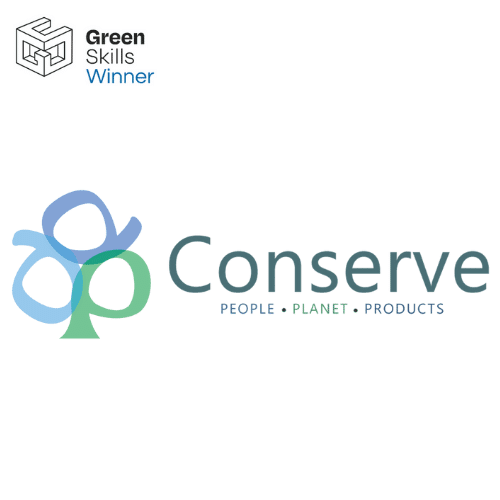
Conserve India - India
To reduce plastic waste from oceans and landfills, Conserve India turns single-use plastics into high-value fashion products like handbags, belts, and footwear. They take plastic from the landfill and the ocean and “upcycle” it into these fashion products. This process increases the value of the product by 3000% and increases the wages of laborers by 150% allowing them to have Fair Wages. So, not only is Conserve India addressing the problem of plastic waste but they are also helping people achieve better livelihoods.
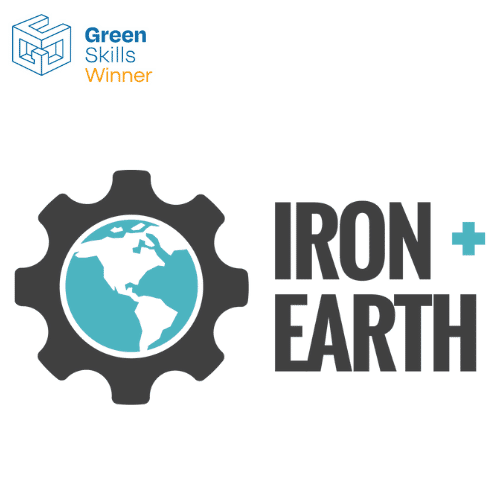
Iron and Earth is developing the online Climate Career Portal to connect fossil fuel industry workers and community members with career pathways in the net-zero economy. This is a direct contribution to the just energy transition that helps unemployed individuals attain jobs in the Green Economy. The Climate Career Portal will also add to the vibrancy of the Green Economy by growing its workforce.
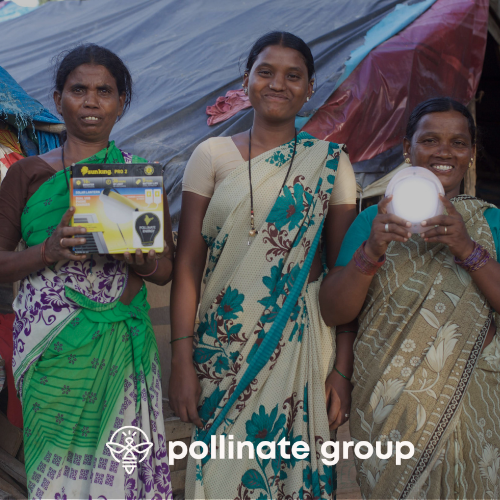
By teaching green skills to young women, Pollinate Group works to improve the living conditions of excluded communities living in poverty in India and Nepal. Pollinate Group has an online Learning Management System that supports women to develop their skills in marketing, sales, cash management, financial literacy, and business management. They provide access to affordable and life-changing clean energy and household products to these women that they then sell and advocate for in their communities.
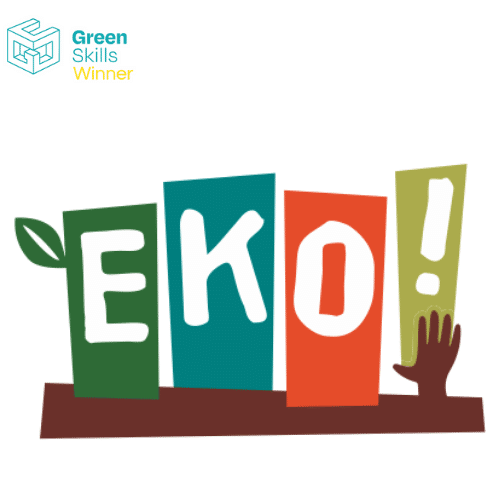
Low-tech with Refugees - France
Working in the biggest European refugee camp and migration hotspots, Low-tech with Refugees helps migrants utilize technology like bee-keeping, wood-saving cookers, agroecological techniques, etc. in order to meet their needs. Not only does this training help refugees take advantage of their manual skills to take care of themselves, but these technologies are also sustainable.
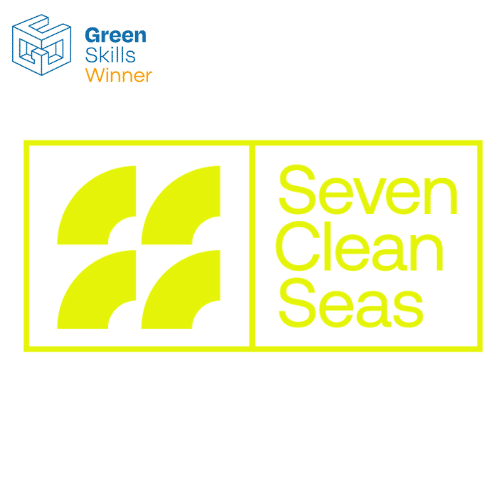
The level of plastic pollution in South East Asia is high, and Seven Clean Seas seeks to lower that level through employing clean-up crews with livable wages and job security. Currently, the waste management industry relies on informal workers who have no health care, maternity, holidays, and earn $2 to $8 a day. In order to decrease the level of plastic in the ocean and simultaneously help lift people out of poverty, Seven Clean Seas uses plastic offsetting to give waste management workers a secure and stable job.
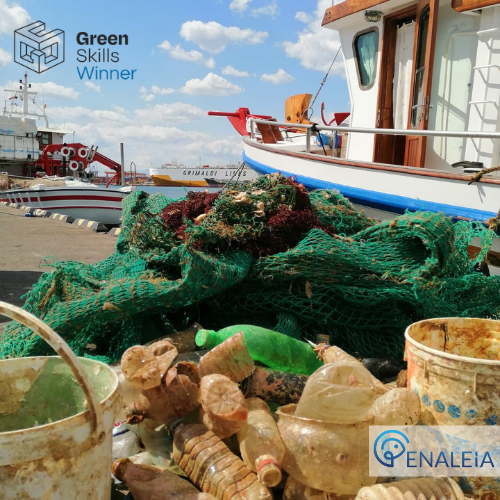
The Mediterranean Cleanup - Greece
Back in 2016, Lefteris Arapakis noticed many fishermen who were bringing up plastic with their catch that would then be thrown back into the sea. Marine plastic pollution jeopardizes marine ecosystems’ sustainability and local fishing economies. So, Lefteris created a process that is backed by a strong network of local fishing communities and recycling and upcycling partners. He first begins by educating fishermen about sustainable fishing techniques and then a team collects plastic waste from fishing boats at ports. That waste is then taken to be recycled or upcycled so that marine plastic becomes part of a circular economy.
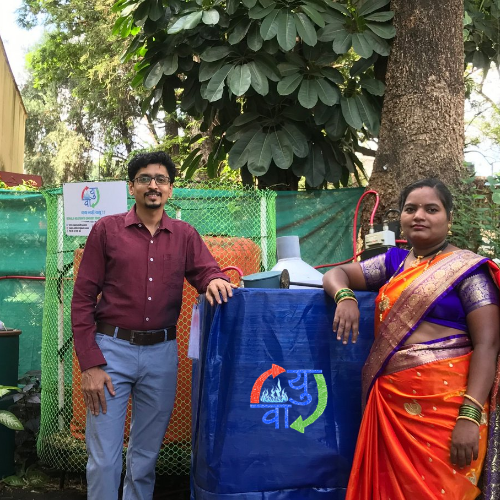
‘Vaayu’ is a biogas system appropriately designed so that anyone can start their journey by making energy from biodegradable waste. A biogas system utilizes natural interactions between microorganisms and organic wastes and produces a clean and energy-efficient gas. That gas can then be used to heat up a home and its water supply. It also provides an opportunity to transition waste management workers from managing waste to supplying green energy, offering an alternative livelihood.

In Kenya, where postharvest loss of food is high, Solar Freeze is developing portable cold storage units powered by solar energy for rural farmers with perishable produce. In the heat of sub-Saharan Africa, temperature control of fruits and vegetables is the most important factor in reducing postharvest losses. Solar Freeze is creating these portable cold storage units that extend the freshness of produce from 2 days to more than 40 days. They connect women with these systems in order to build the resilience of these rural communities.

To help with the just transition of former loggers in Indonesia, Madagascar, and Brazil, Health in Harmony is connecting loggers to alternative livelihoods. Protecting and restoring forests could remove 7 billion metric tons of carbon dioxide annually (the equivalent of eliminating 1.5 billion cars). So, to allow both rainforests and rainforest communities to thrive, Health in Harmony offers alternative livelihood training to ensure that former loggers can make a just transition to a sustainable livelihood. One of those livelihoods includes organic farm techniques: for example, crop rotation to stop the use of slash-and-burn farming.
